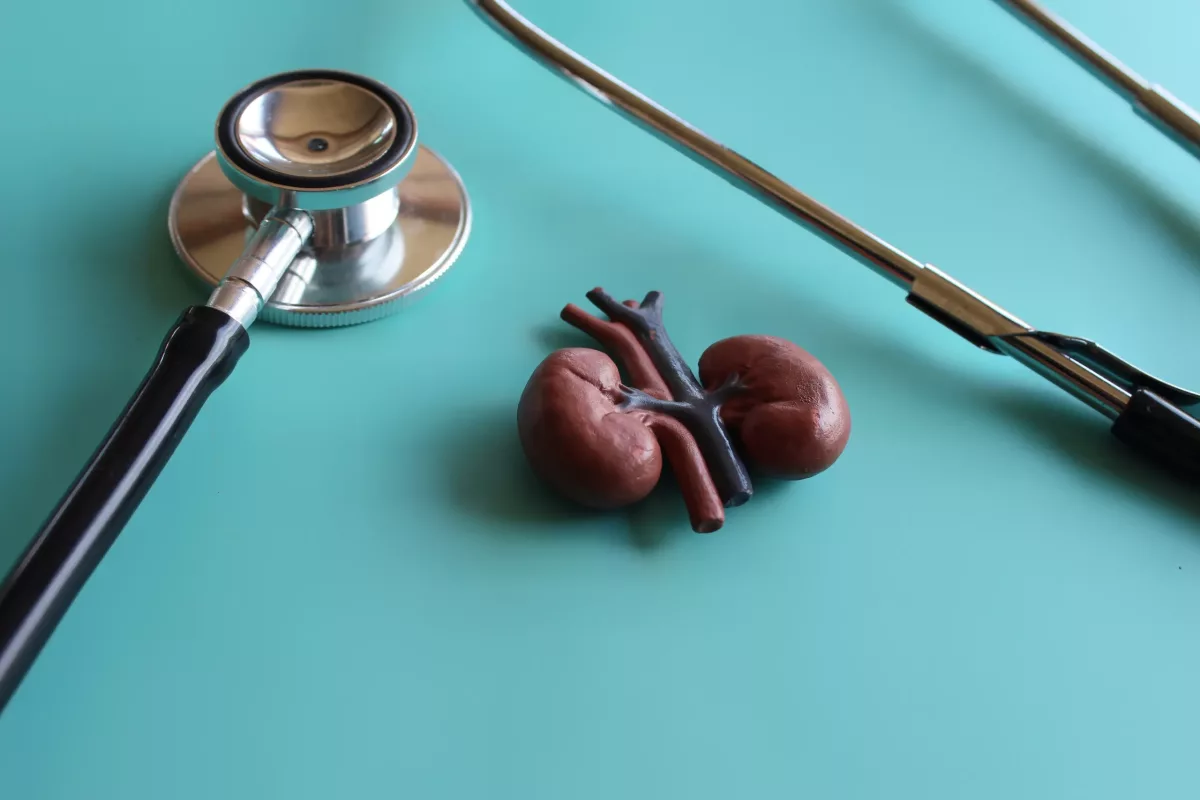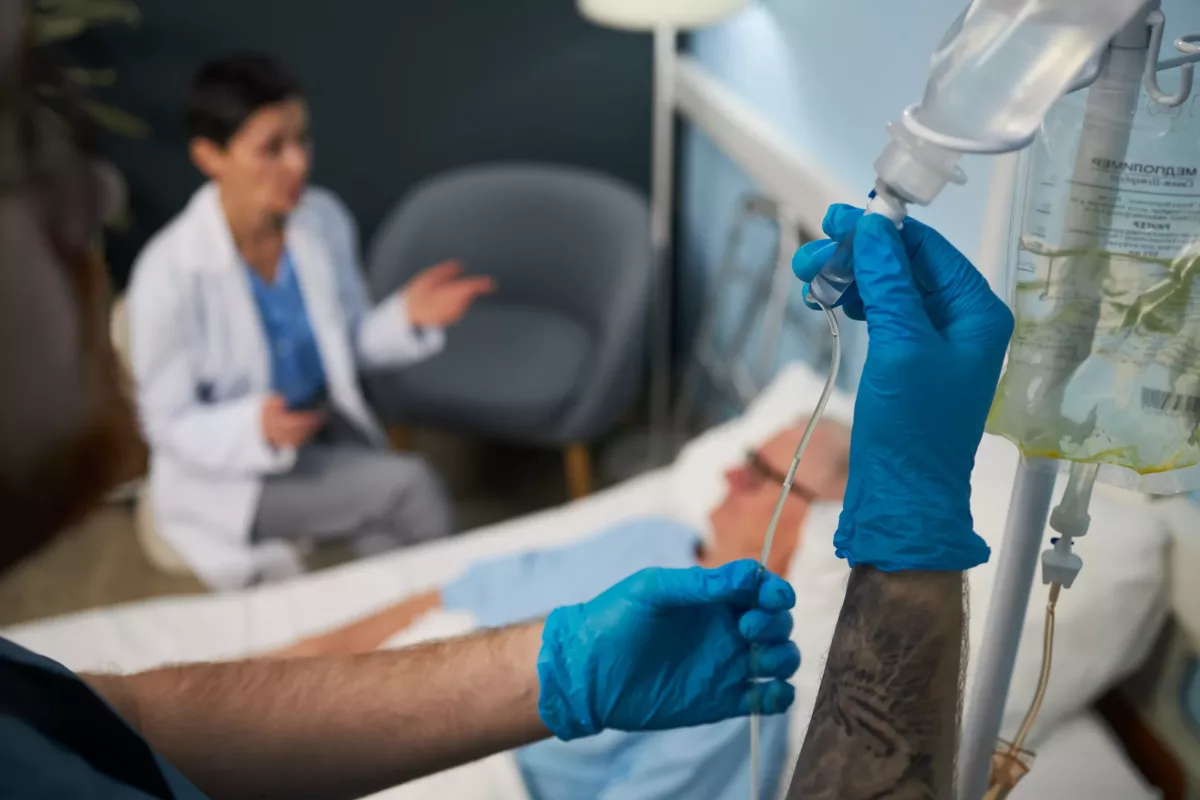A type of cancer that appears in the adrenal glands is called adrenal cancer. These glands are located on the top of each kidney, and they control various processes in the body. Adrenal glands produce hormones that control metabolism, blood pressure, and other essential body functions.
This type of cancer usually occurs rarely and mostly affects children younger than 5 years old and adults between 40 and 50 years old. Sometimes, this cancer is called adrenocortical carcinoma.
The only way to cure this type of cancer is early diagnosis and treatment. When it is found early, the tumor is small and can be easily removed. If the cancer spreads from the adrenal glands to other parts of the body, the treatment focuses on stopping the spread of the cancer.
However, most tumors that develop in the adrenal glands are benign (noncancerous). One benign adrenal growth is called an adrenal adenoma.
Symptoms
Check below some symptoms that people with adrenal cancer often experience:
- Back of abdominal (belly) pain
- Abnormal weight loss
- Appetite changes
Almost all people with this type of cancer develop hormone changes in the body. It occurs because abnormal (cancerous) cells produce too many hormones (in most cases, Cortisol). As a result, you may experience certain symptoms similar to those of Cushing syndrome. For example:
- Pink or purple stretch marks on the skin
- Bruising
- Hypertension (high blood pressure)
- Hyperglycemia (high blood sugar)
- Diabetes
- Muscle weakness
- Weight gain
Sometimes, extra hormones produced by tumors are Estrogen and Testosterone. In women, extra Estrogen may lead to extra facial hair, hair loss on the top of the head, and irregular menstrual periods. In men, increased Testosterone levels may cause testicles to shrink, bigger breast tissue, and other symptoms.
Rarely, abnormal cells produce a hormone called Aldosterone. It may cause hypertension and reduced Potassium levels in the blood.
If you experience any of the previous symptoms or others that cause concerns, immediately contact your physician.
Causes
Experts do not fully understand why this type of cancer occurs, but like other types, it appears when cells of the adrenal glands develop changes in the DNA. The DNA of a cell contains multiple instructions that tell cells when to grow, multiply, and die. However, DNA mutations give different instructions to the cells, which cause them to grow and multiply abnormally. As a result, abnormal cells live much longer than healthy ones. When abnormal cells become too numerous, they form a mass called a tumor that may break when it grows too large. If the tumor breaks and invades other tissues and organs of the body, it is called metastatic cancer.
Risk Factors
Healthcare professionals have identified some factors that could increase your risk of developing adrenal cancer. These include:
- Multiple endocrine neoplasia type 1 (also known as MEN 1)
- Lynch syndrome
- Li-Fraumeni syndrome
- Familial adenomatous polyposis
- Beckwith-Wiedemann syndrome
Unfortunately, there is nothing that can prevent adrenal cancer.
Complications
People who develop adrenal cancer may also experience some complications, especially without treatment. Check below some examples:
- Hypokalemia (low Potassium in the blood)
- Diabetes
- Hirsutism (increased facial hair growth)
- Unusual weight gain
- Fast heart rate
- Enlarged breasts (usually occur in men)
- Hypertension (high blood pressure)
This article does not contain all possible complications of adrenal cancer. For more details, discuss it with your healthcare professional.
Diagnosis
Usually, the diagnosis of adrenal cancer begins with a physical examination to check for irregularities linked with the cancer and questions about the symptoms and medical history. They may also perform some tests to confirm the cancer and rule out other conditions that cause similar symptoms. Check below some examples:
- Blood and urine tests – These tests are used to check levels of hormones that are produced by the adrenal glands. Increased levels of Cortisol, Aldosterone, and Androgens usually indicate adrenal cancer.
- Imaging tests – Doctors usually perform a CT (computerized tomography) scan, an MRI (magnetic resonance imaging) scan, or a PET (positron emission tomography) scan. These tests help identify the exact location and size of the tumor. It may also show if the cancer has spread to other parts of the body.
- Biopsy – Sometimes, doctors may perform surgery to remove a small sample of the tumor and test it in the laboratory for cancer cells.
Treatment
Usually, the main treatment for adrenal cancer is surgery to remove the tumor. However, some people may need other treatments such as radiation therapy, chemotherapy, or others.
Surgery
Commonly, during this treatment, surgeons remove the whole adrenal gland. This surgery is called an adrenalectomy, and it may be performed for multiple reasons. For example:
- To confirm the diagnosis
- Remove the cancerous tumor as much as possible
- Determine if the cancer has spread
- Lessen the symptoms (surgery is often performed to reduce the symptoms when abnormal cells begin to produce too many hormones)
Generally, it is common for this type of cancer to spread outside the adrenal gland. If doctors identify that the cancer has spread to nearby tissues and organs (such as the liver or kidneys), the affected tissues and organs are also removed.
Radiation Therapy
This treatment option involves powerful energy beams delivered directly to the tumor to destroy it. The energy usually comes from X-rays, protons, and other sources. Doctors usually recommend radiation therapy to destroy cancer cells that may remain after surgery or to shrink the tumor before surgery. Radiation therapy may also be used to relieve pain when cancer spreads.
Chemotherapy
It involves strong medications used to destroy cancer cells throughout the body. These drugs are usually given intravenously (IV), but a pill form is also available.
Mitotane
This is an old medicine used to treat advanced forms of adrenal cancer. It also helps prevent the recurrence of the cancer after surgery.
Immunotherapy
This treatment involves specific medicines that help the immune system find and destroy cancer cells. Cancerous cells produce certain chemicals that help them hide from the immune system. Immunotherapy is used to boost the immune system. However, in people with adrenal cancer, this therapy is used when the cancer has spread to other structures and organs of the body.
Frequently Asked Questions
What is the survival rate for adrenal cancer?
If the cancer has not spread, the 5-year survival rate is approximately 74%. However, when the cancer spreads to other parts of the body 5-year survival rate drops to 37%.
What are the adrenal cancer symptoms?
These include:
- Headaches
- Abdominal or back pain
- Muscle cramps or weakness
- Pounding heartbeat
- Sexual problems
- Enlarged breasts
If any of the previous symptoms occur, visit a doctor immediately.
Is adrenal cancer curable?
Yes, but only if it is detected and treated early. In most cases, adrenal cancer is found when the tumors are large because until the tumors grow, they do not cause any symptoms. Ask your healthcare professional if you have additional questions.




